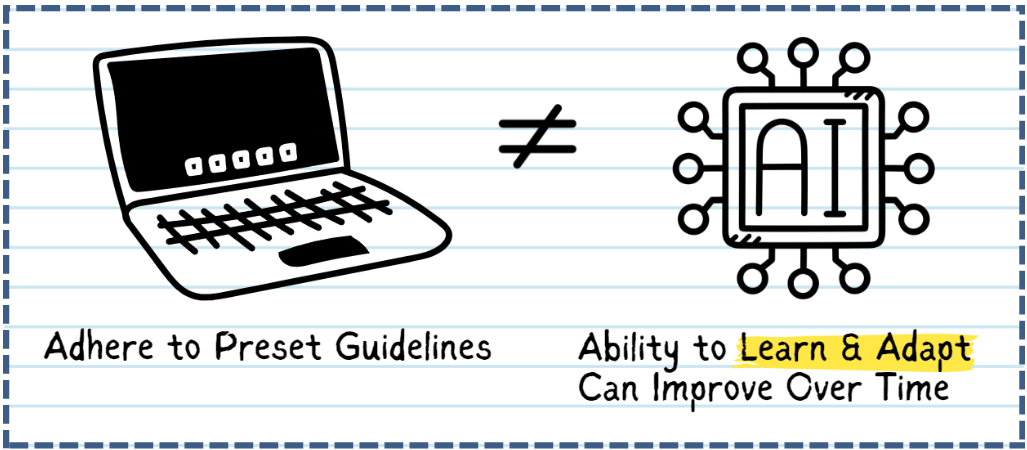An eventful March unfolds in the arts, technology, and entertainment space. With the sale of TikTok still pending, well-known tech investors like Perplexity, Microsoft, and Oracle throw their hats in the ring. And, though ethical debates of AI-generated and AI-assisted work are ongoing, it is finding success in the auction houses and award ceremonies. Meanwhile, recent tech acquisitions may signal a shift in the music industry, and South by Southwest (SXSW) is making a strategic adjustment following this year’s festival. Read the highlights.
Star Talent: Journalism’s Influencer Era
In an age when content creation is set to hyper-speed and cast across chaotically-changing social media platforms, journalism has become embroiled in the crossfire. Some approaches to the form have embraced such change, turning to more decentralized and personality-driven forms of reporting and analysis to survive the ever-choppier digital waters. Learn how AI and social media giants are impacting this evolving journalism ecosystem.
Part II: Live Service Games - Consumer Engagement and Retention
With this increased competition form live service gaming, consumer expectations continue to shift and grow. In Part II of this capstone research by Heinz College Master of Entertainment Industry Management students, the team has employed data-gathering methods such as interviews, a survey, and social listening to better understand factors influencing player engagement and retention.
Part I: Best Practices for Live Service Game Campaigns
Live service games, or LSGs, are one of the largest drivers in gaming revenue. However, as the market continues to saturate, game developers are finding it difficult to sustain players. In part one of this capstone study by Heinz College Master of Entertainment Management students, learn more about the background of these games and what has made them so successful.
Music, Movies, & More - February News
In the middle of awards season, major announcements in the media and entertainment industry defined February’s news. While Spotify prepares to ramp up its product offerings, new AI-powered tech is winning Grammys and helping make magic happen on the big screen. All this takes place in the shadow of some major policy announcements regarding copyright and AI.
Models for Guaranteed Income, Resource-Sharing, and Pension Programs: Saving the Starving Artist & Cultural Sector
As technology reshapes employment, artists face particular financial challenges, earning 30% less than their peers while lacking traditional benefits. This article examines how cities and organizations are testing new solutions—from guaranteed income programs to innovative pension schemes—to provide artists with greater economic stability.
AI Integration and Barriers in Education
Educators are grappling with the challenge of integrating AI into classrooms, fearing that these systems might replace traditional learning methods rather than enhance them. This brings us to the question: what barriers prevent educators from implementing artificial intelligence into their curriculum, and how can they be addressed?
New Year, New Media - January News
January ushered in a new year with sweeping disruptions in media, journalism, and public humanities. Technology-driven partnerships, staff cuts, and mergers have redefined the online media landscape kicking-off 2025, calling into question journalism’s position in an age of generative AI. Read the highlights below.
All the World’s a Stage and the Technology Merely a Player
More than 400 years after Shakespeare’s death, his works remain essential to theatre as we know it. Now, emerging technology is changing the way we interact it. From extended reality to artificial intelligence, audiences can now immerse themselves in performances and extract meaning from texts in ways never seen before.
Crafting Grant Narratives - Approaches to Justifying Arts Funding
The grant narrative has become one of the most high-stakes tools of communication in the nonprofit fundraising space, driving more than $150 billion in global expenditures. As grant writers adapt their appeals in response to changing funder values, this narrative network gives shape to the nonprofit ecosystem in which many arts organizations operate.
Psychological Impacts of VR Experiences and Their Implications for Museums
Your 2024 Favorite Reads
Artificial Intelligence’s Involvement in the Human Creative Process
As AI continues to integrate into our everyday lives, how does it impact our creativity? Many researchers and scholars agree that the technology may promote significant opportunities in this space. By introducing novel ideas and opportunities to users, it may be most effective as a tool to augment, rather than replace, human creativity.
Exploring Integration of XR in Museums to Enhance Visitor Experience
Many museums have gravitated towards utilizing XR (VR, AR, or other extended reality modes) in numerous ways to enhance visitor experience. While there are successful ways to support visitor experience, it is possible that XR can have negative impacts. This article explores case studies of two museums who have integrated XR into their exhibitions: the Cleveland Museum of Art and Illinois Holocaust Museum, discusses the positive and negative facets of these technologies on visitor experience, and analyzes implications for the arts field.
November News: Tech Innovations in Arts and Culture Markets
Major breakthroughs in the markets for art, books, and fashion arrive perfectly timed for the holiday season. Tech innovations demonstrate their ability to reshape markets and incentivize commerce across digital economies. From fine art to rare fashion finds, tech is redefining how we navigate digital art and cultural commerce. Read on to learn how you might make your next purchase with the help of artificial intelligence or the blockchain.
Part II: Game IP: From Console to Screen
As the video game industry continues to grow, Hollywood studios are capitalizing on this intellectual property (IP) success through film and television adaptations. Students from Heinz College’s Master of Entertainment Industry Management program sought to better understand the current market for these adaptations. In Part II, see what film and video game executives consider to make an adaptation successful. Additionally, through a survey of gamers and non-gamers, learn what potential audiences prefer to see.
Digital Colonialism in the Global Sphere
Colonialism has consistently been a force in the global purview, including the technological space. In recent years, the expansion of artificial intelligence has vastly increased corporations’ global influence. As the world’s technologies continue to advance and innovate, individuals must keep a watchful eye on the ways in which digital colonialism might repeat harmful practices from the past.
Part I: Playing the Game: The Convergence of Video
Due to the popularity and booming business of video games, Hollywood studios have capitalized on popular game titles by developing new content based off of their intellectual property (IP). This study sets out to better understand video game IP’s impact on film and television markets and what specific elements might impact an adaptation’s success.
Future of Museums Summit 2024 Key Takeaways
Sustainability and AI were at the forefront this year at the American Alliance of Museums (AAM) Future of Museums Summit. What role will museums play in creating climate-friendly communities? And how can AI be used to maximize efficiency, increase accessibility, and deepen engagement? Read key conference takeaways from Xueer Ho and Dr. Brett Ashley Crawford.
Data Cultures Part II: Breaking Free from the Cycle of Disempowerment
An overemphasis on data-driven work within the nonprofit sector has been shown to result in cycles of disempowerment, driven by third-party data demands of funding bodies. This compounds due to the many market orientations nonprofits need to adopt, particularly prevalent among the arts. A key to navigating these markets and funder requirements lies in identifying a specific data culture best fit for your organization and investing in resources and training in order to achieve that framework sustainably.



















